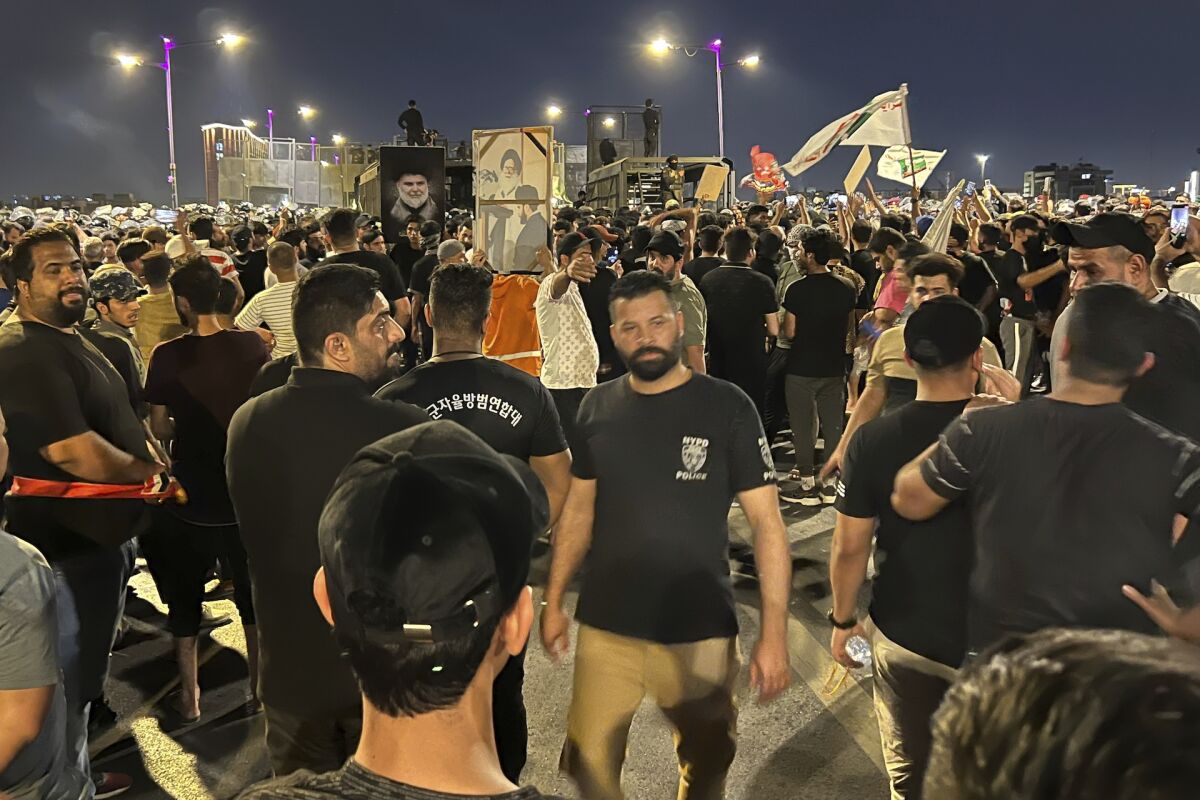Iraq witnessed renewed tensions on Saturday as a series of protests in Europe involving the desecration of the Quran sparked a fierce debate over the delicate balance between freedom of speech and religious sensitivities.
Attempted Storming of Baghdad’s Green Zone:
Hundreds of protesters sought to breach Baghdad’s heavily fortified Green Zone, which houses foreign embassies and Iraq’s government offices. This came in response to reports of an ultranationalist group burning a copy of the Quran in front of the Iraqi Embassy in Copenhagen, Denmark, the previous day. Security forces managed to repel the protesters, who had blocked the Jumhuriya bridge leading to the Green Zone, preventing their access to the Danish Embassy.
Unrest Spreads in Other Parts of Iraq:
In Basra, southern Iraq, demonstrators set fire to three caravans belonging to a demining project run by the Danish Refugee Council. Fortunately, there were no human casualties, but material losses were reported. The Danish Refugee Council condemned the attack, with Lilu Thapa, the organization’s executive director for the Middle East, denouncing violence against aid workers.
Iraq Severs Diplomatic Ties with Sweden:
Iraq’s Prime Minister expressed strong disapproval by cutting diplomatic ties with Sweden as a response to the Quran desecration incident in that country.
Iraqi Asylum-Seeker’s Provocative Actions:
The incident in Sweden involved an Iraqi asylum-seeker of Christian origin, now a self-described atheist.He burned a copy of the Quran during a demonstration in Stockholm. Although he did not set the book on fire, he kicked and stepped on it, along with an Iraqi flag and photos of influential Iraqi Shiite cleric Muqtada al-Sadr and Iran’s supreme leader Ayatollah Ali Khamenei. Public demonstrations are protected by Sweden’s constitution, and the country abandoned blasphemy laws in the 1970s.
Peaceful Protests in Muslim-Majority Countries:
Thousands participated in peaceful demonstrations in Iraq and other Muslim-majority nations, expressing their outrage over the Quran desecration incidents.
International Reactions:
In Iran, General Hossein Salami of the Revolutionary Guard warned of severe punishment for those who insult the Quran. The Danish government condemned the demonstration in Copenhagen, with Foreign Minister Lars Løkke Rasmussen criticizing the act as provocative and aimed at creating division.
Reactions from Iraqi Government and Iran:
Iraq’s Ministry of Foreign Affairs strongly condemned the abuse against the Quran and the Iraqi flag in front of the Iraqi Embassy in Denmark, urging the international community to address such atrocities. Iran’s foreign ministry spokesman, Nasser Kanaani, criticized the Quran desecration in Denmark and demanded that the Danish government take responsibility for preventing such acts and punishing the perpetrators.
Second Round of Protests in Baghdad:
More than a thousand protesters gathered again in central Baghdad, refraining from storming the Green Zone. Instead, they burned Swedish and LGBTQ+ flags and chanted against the United States, Israel, Sweden, and Denmark before dispersing peacefully.
The incidents of Quran burning in Europe have ignited strong reactions in Iraq. Other Muslim-majority countries faced protests and diplomatic tensions. The situation remains sensitive, as authorities and international communities grapple with the balance between freedom of speech and the respect for religious beliefs.















